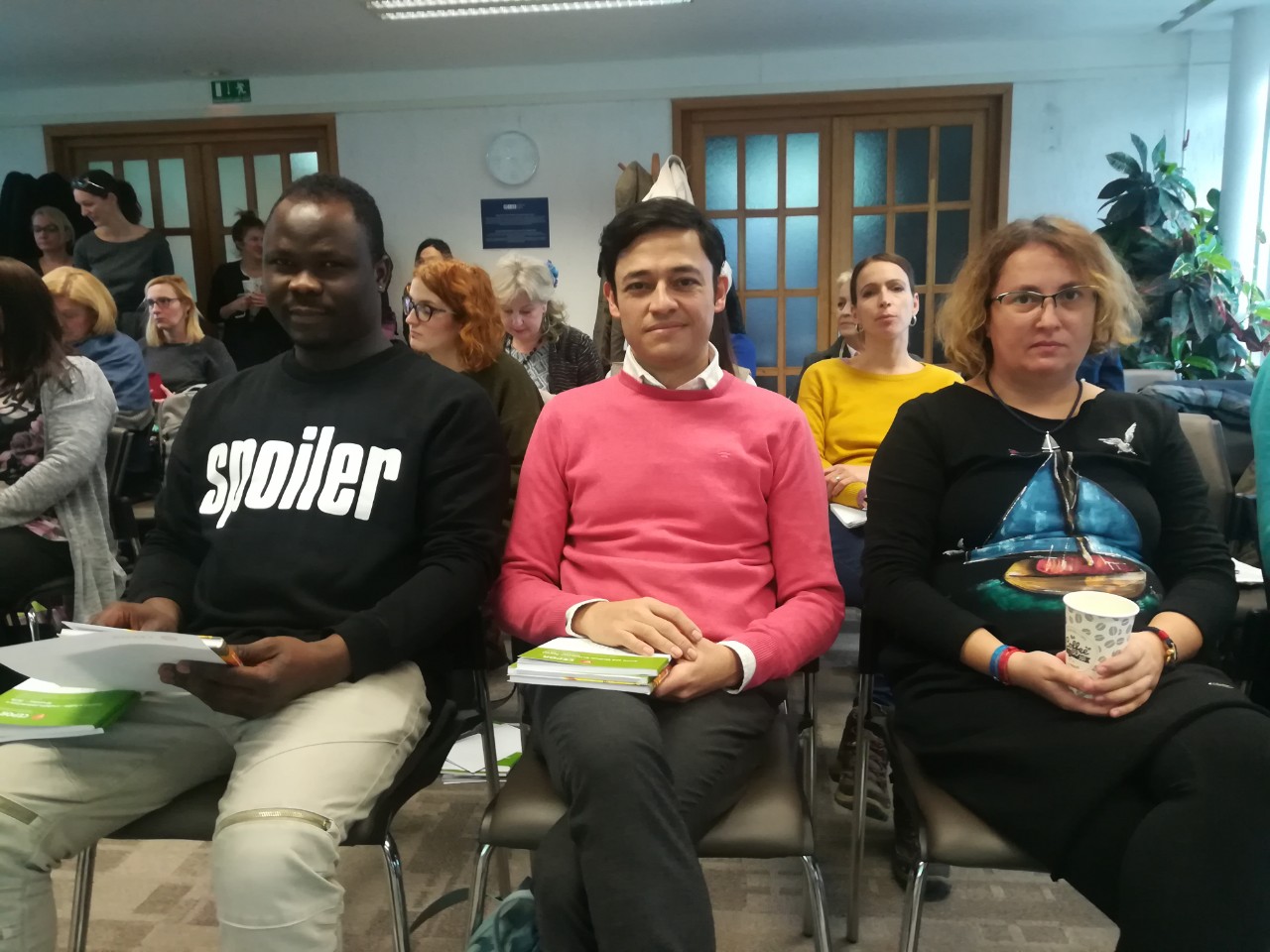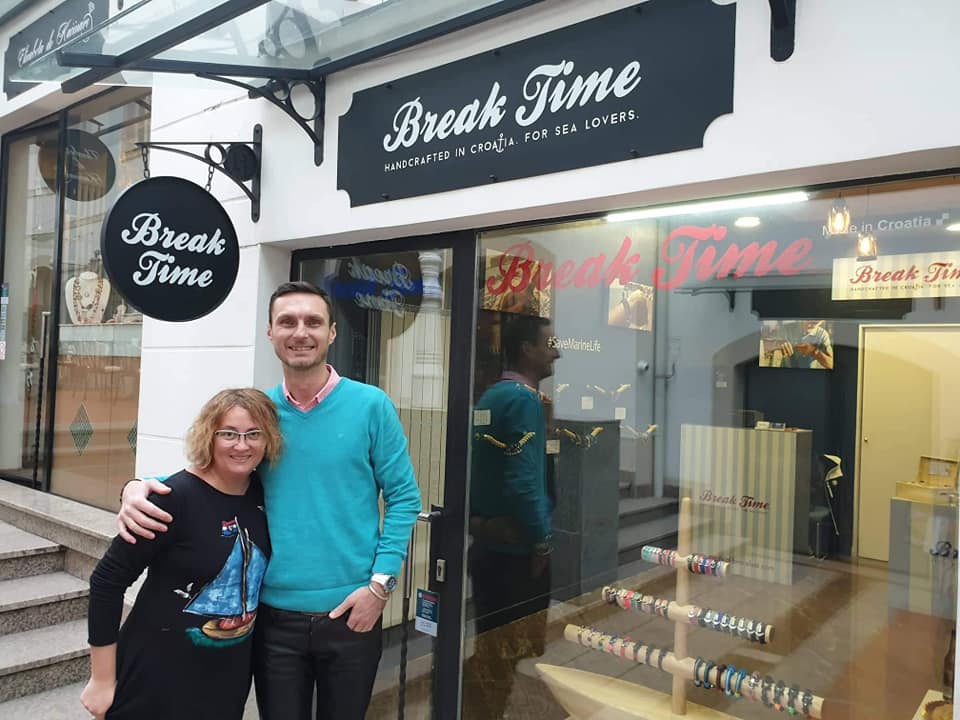Migrants in Croatia: Business Barriers to Starting a New Life
Last month, CEPOR held a round table conference in Zagreb, and invited different migrant business owners in Croatia to speak. The purpose of the roundtable was to understand the current status and potential of migrant entrepreneurship and migrant businesses in Croatia. We interviewed two CEPOR members, Ružica Šimić Banović and Mirela Alpeza to learn more.
Last month, CEPOR (Centre for Small and Medium Enterprises Development and Entrepreneurship) hosted a roundtable conference in Zagreb to learn more about the current migrant business climate; the barriers and changes needed to promote positive growth. The invited speakers were: Hermes Arriaga Sierra – co-founder of the Impact Hub in Zagreb, Prince Wale Soniyiki – owner of the African Restaurant & Bar in Zagreb, Sara Kekuš, Program Leader of Asylum, Integration and Human Security at the Centre for Peace Studies, Jan Brzozowski – Professor at the Faculty of Economics in Krakow, and Mirela Rus – co-owner of Breaktime Nautical Jewelry.

Left to Right: Prince Wale Soniyiki, Hermes Arriaga Sierra and Mirela Rus.
The discussion focused around the barriers and areas for improvement that these migrant business owners and entrepreneurs have faced in Croatia. We reached out to the organisers of the roundtable to learn more about their intentions and conclusions from the discussion.
Can you tell us a little about CEPOR, your work and objectives?
Mirela Alpeza: CEPOR – SMEs & Entrepreneurship Policy Centre is the first think tank in Croatia which deals with the problems of the SME sector. CEPOR is a non-profit organisation founded in 2001 based on the Agreement between the Republic of Croatia and the Open Society Institute Croatia. The founders of CEPOR are 10 institution leaders in their fields of work – from the academic community to business associations, development agencies and entrepreneurial centres.
The mission of CEPOR is to contribute to the shaping of entrepreneurial culture and stimulating institutional and regulatory framework for entrepreneurial activity in Croatia. Areas of work cover policy research, policy development and advocacy related to entrepreneurship and SME sector.
What was the main purpose of the roundtable for migrant business owners?
Ružica Šimić Banović: The aim of the Roundtable was to enhance the understanding of the specifics and potential of migrant entrepreneurship in Croatia. Namely, despite its current emigration wave and a growing need of workforce and entrepreneurial incentives in Croatia, only 40% of Croatian citizens believe that immigrants have an overall positive impact on the national economy and only 11% consider the immigration to be an opportunity for the society as a whole. This data refers to the perception of non-EU immigrants and is taken from the latest Eurobarometer survey. Moreover, when talking about immigration-related issues, Croatian citizens are the least informed in the EU – 81% of them consider themselves insufficiently informed on the immigration and integration related matters.
Our Roundtable raised much more interest than initially expected, in particular among media, scientists and in the business community. Our next step is a policy brief and further research aimed at advocacy.
Do you have solid statistics for the number of migrant business owners operating in Croatia?
Ružica Šimić Banović: Unfortunately, we still have major issues connected with a lack of reliable data on migrant entrepreneurship in Croatia. This matter has already been raised by colleagues from the Centre for Policy Studies who started their migrant entrepreneurship projects a few years ago.
Still, we have examples of decade-long' success of foreign entrepreneurs in Croatia, like the owners of Chinese restaurants, several clinics owned and run by doctors from all over the World, IT companies owned and co-owned by foreigners, music festivals brought to Croatia by foreign entrepreneurs etc. Croatian brands like Yasenka and Image Haddad are not to be missed on this list! And Slavoljub Penkala as a historic example as well.
Will this information be presented to the government, what is the follow-up from here?
Ružica Šimić Banović: Now we are writing a policy brief that will be distributed among all the relevant stakeholders. It is based on the available data and on very resourceful interviews with foreign entrepreneurs in Croatia. So far, there have been some incentives tackling the migrant entrepreneurship in Croatia, but the daily practice shows that their implementation is quite fragmented and consequently, the outcomes are somewhat questionable. The latest business executives survey done by The World Economic Forum for The Global Competitiveness Report places Croatia among the most unsuccessful countries in the World according to several immigration and business climate-related indicators. These include Ease of hiring foreign labour (139th out of 140), Hiring and firing practices (135th out of 140), Attitudes toward entrepreneurial risk (137th out of 140) and Burden of government regulation (138th out of 140). There are also indicators that place us among the top 20 countries in the World, these mostly tackle infrastructure, trade openness and low terrorism risk.
Regarding the incentives for returning heritage Croatians, there have been several targeting mostly potential investors and scientists. To my knowledge, there is no systemic approach to that issue. However, there is a huge potential in return and circular migrants, but pull factors need to be improved in the meantime.
Mirela Alpeza: We will also use the aforementioned policy brief in the advocacy activities. We strive for a more favourable business environment that should be supportive of the development of migrant entrepreneurship as well. We also hope that this issue will be recognised at a policy level and we expect appropriate measures to be undertaken. This would bring Croatia closer to countries representing good practices in this field.
Experiences and opinions from migrant business owners in Croatia
Mirela Rus and her husband Ionut Copoiu have just opened their fifth Nautical Jewelry store in Zagreb; Mirela shares some of her experience and thoughts on the matter of migrant business opportunities and policies.
“Our story was quite easy in comparison, we didn’t face too many barriers or obstacles but we are aware that for citizens outside of the EU, it is quite difficult. Our conclusion at the end was that if they want to stay ahead of the declining population numbers, and support economic growth and general development of the country, then the government needs to start paying attention to migrants and adopt measures to actually encourage people to move to Croatia and open businesses.
The current state of play is discouraging for countries outside the EU to move, spend money and develop their business ideas here. The only measures we see to encourage people to come to Croatia are related to the deficit of the workforce in the summer season.
Increasing the quotas of third-country nationals allowed to come and work here is obviously a necessity, but of equal importance is the encouragement and support of people to move here, open a business or invest, and this needs to be lobbied effectively in order to see any legislative changes.
And talking about legislative changes, coming from a country where we could see and feel firsthand what the positive impact was from adopting a lower, flat VAT rate (16%) did to businesses and the economy. In general, I truly hope we will live to see a lower VAT rate in Croatia, or, at least a girl can dream…”

Migrant Business owners Mirela Rus and Ionut Copoiu at the opening of their Zagreb store.
Kekuš also agreed that “bureaucratic problems and barriers for third-country nationals (Non-EU countries) are numerous”.
Prince Wale Soniyiki spoke openly about facing many bureaucratic challenges, as well as prejudices. Prince came to Croatia as a refugee from Nigeria, while many of his friends moved on to the seemingly greener, less complicated pastures of Germany. So again, Prince reiterated the need for better systems and support. You can watch a full video interview with Prince, courtesy of Borna Sor below.
What was the overall conclusion from the roundtable?
Ružica Šimić Banović: The overall conclusion was that the potential of the migrant entrepreneurship in Croatia is underestimated and there is a consistent deficit of state strategies and public policies tackling it. In addition, there are prejudices among the stakeholders and general public, mostly related to immigrants from less-developed and war-affected countries. Previously mentioned ignorance combined with very limited openness towards other ethnic groups discourages their entrepreneurial initiatives and integration in the society. That insensitivity towards foreigners is in a way surprising because of the long emigration tradition for Croatians.
The surveys across EU countries show that respondents with personal immigration experience are more likely to have a positive attitude towards other immigrants. However, this does not seem to be the case in Croatia, despite the obvious fact that we urgently need more entrepreneurial spirit and foreign workforce in many sectors.
Hence, the changes need to be both bottom-up and top-down, i.e. the incumbents implementing adequate policies, other stakeholders recognising the importance of the migrant entrepreneurship and integration of foreigners in general, and finally, ordinary people questioning and hopefully changing their attitudes on those matters.
Let me also stress that even the entrepreneurs coming from the EU countries continuously face the barriers when doing business in Croatia. Those include administrative burden, unpredictable tax regulations, high tax rates and overly strict employment regulations. Local entrepreneurs keep warning about the mentioned barriers for decades. In addition, there are obstacles specific to foreign entrepreneurs like the lack of clear instructions in English for doing business. Non-EU citizens keep facing the work permit and mandatory financial capital problems as well.
So, are there opportunities for migrant businesses and foreign investment in Croatia?
Are there business opportunities in Croatia? Yes. Are the current systems in place to support migrant businesses and investment conducive to growth, development and a flourishing entrepreneur scene? No, not as it currently stands.
The overwhelming conclusion on all sides was that Croatia is seriously lacking systemic structures and processes to support migrant business owners, entrepreneurs and foreign investment. Combine this with apparent prejudices, and lack of open-mindedness – especially related to third-country migrants, and it seems that Croatia has a way to go. Hopefully, the government pays attention to valuable discussions like these, and we see some changes in policy and structures to encourage migrant business owners and positive foreign investment.
Members from CEPOR are currently preparing a policy brief on immigrant entrepreneurship in Croatia which will be published soon, and we will be sure to follow-up with. For more business-related news in Croatia, you may want to read and follow our business page.
Many thanks to Ružica Šimić Banović and Mirela Alpeza for their in-depth responses on the subject.

